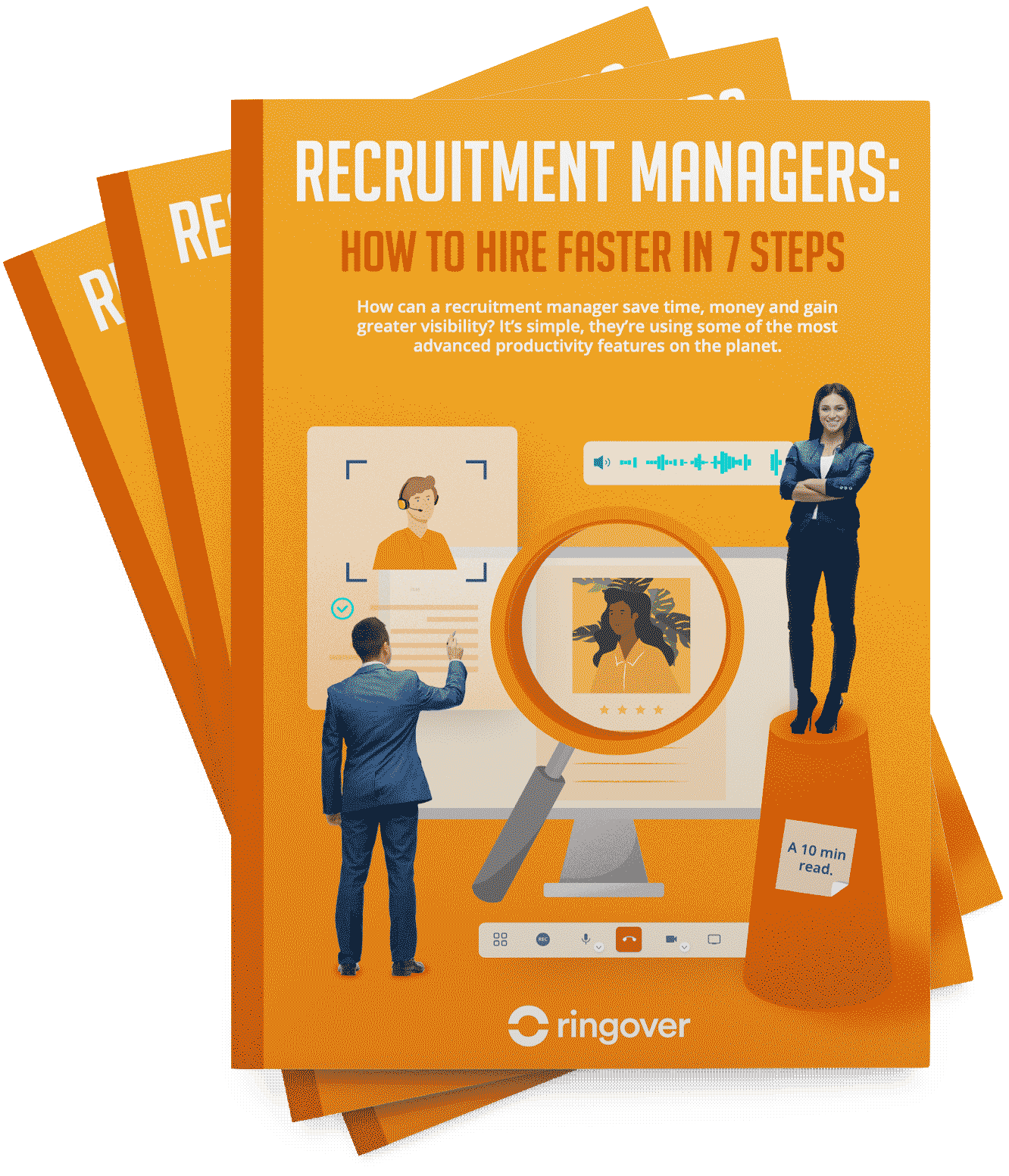Summary
Artificial Intelligence (AI) has rapidly transformed various industries, and recruitment is no exception. With its ability to automate and streamline processes, using AI in recruitment has many benefits for recruiters and hiring managers.
In an increasingly technology-driven business environment, AI for human resources is playing a fundamental role in the sector. These tools are transforming the way HR professionals recruit, select, and manage employees.
AI in recruiting has different benefits, like business data analysis and management. In the market, there are several AI recruitment tools or AI recruitment software capable of helping you with specific tasks.
From automating repetitive tasks to improving data analysis for decision-making, AI in HR offers great potential to optimize talent management processes. In this article, we will explore the 7 AI recruitment tools that are revolutionizing the way HR departments operate in organizations, providing efficiency, accuracy, and much more effective results. Keep reading to discover the staffing agency software that will revolutionize your way of managing personnel.
What is AI for recruiting?
Using AI in recruitment refers to the use of artificial intelligence to automate, optimize, and enhance various stages of the hiring process. These AI-powered solutions can handle tasks such as candidate sourcing, resume screening, interview scheduling, candidate engagement, and even predicting candidate success and cultural fit. AI recruitment tools have transformed the way talent is recruited, managed, and retained in organizations, especially those using AI call center software.
Top AI for human resources tools
| AI Recruitment Tool | Functions | Pricing |
|---|---|---|
| 1. Empower by Ringover | Transcribe all calls and automatically identify the topics discussed | $69 per user/month |
| 2. Effy AI | 360-degree performance evaluation and feedback tool powered by AI | Two plans are available, at $150 per month and $600 per month, billed quarterly |
| 3. Ceipal | Tool that uses AI to optimize talent acquisition and management processes | Prices vary depending on the exact product combination chosen |
| 4. CVVIZ | AI tool that analyzes resumes and provides insights to improve candidate selection | This software ranges in price from $79 per month to $369 |
| 5. Wade & Wendy | AI-powered chatbot that manages recruitment and onboarding processes | No information is available online |
| 6. Textio | It helps to optimize job descriptions and communication to attract the best talent | Textio doesn't have their prices listed on their site |
| 8. Beamery | An AI-powered platform for proactive hiring, talent pooling, and candidate relationship management | No information is available on the Beamery website |
1. Empower by Ringover
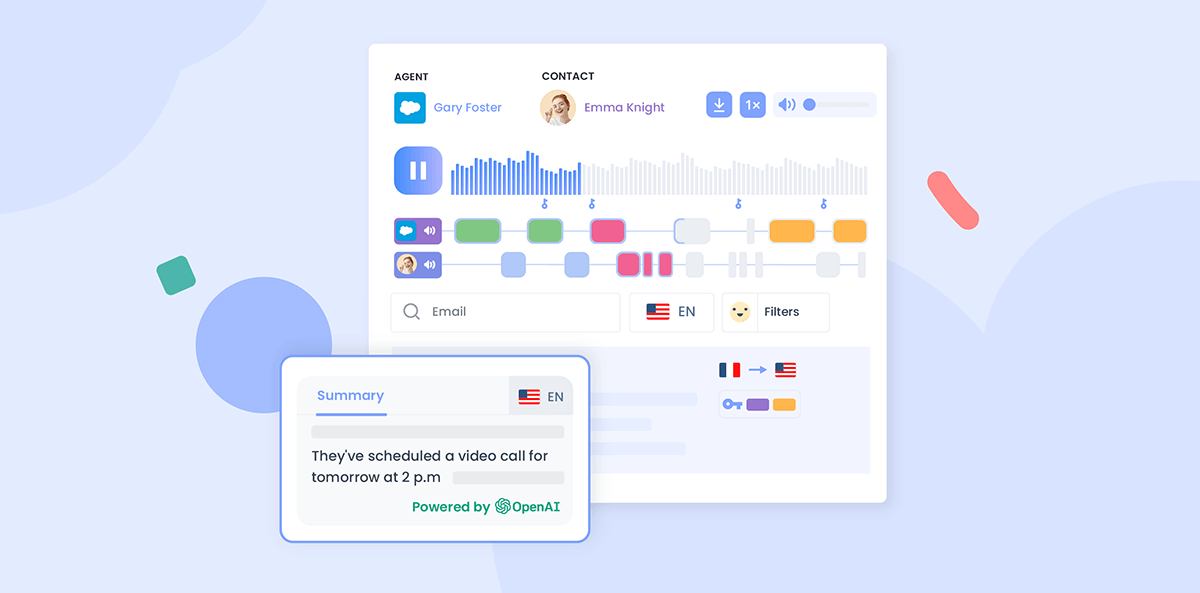
Empower by Ringover is an artificial intelligence solution that enables companies to improve customer service, sales prospecting, and ultimately, drive their growth. With this tool, your employees will know the most appropriate responses thanks to sentiment analysis, thus providing a more personalized and satisfying experience to clients and prospects.
Empower is an AI in HR tool as it helps improve customer service and customize their user experience. Thanks to its ability to analyze conversations, Empower can identify the most frequent inquiries from customers. This information allows recruiters to focus on the questions and needs that matter most to their customer base.
This tool also offers recruiting agents the opportunity to monitor and analyze performance to detect areas for improvement. By using sentiment analysis technology to identify patterns in dialogue, your agents help managers identify recurring concerns or communication issues between agents and clients. Additionally, conversation monitoring can also help recruiting companies identify and solve problems in real-time, enhancing the company's brand image.
In essence, Empower revolutionizes conversational AI analysis and provides companies with access to the potential of AI for human resources to improve customer relationships.
Video: Discover Empower by Ringover
2. Effy AI

Effy AI is a great tool for HR agencies if you are looking for an artificial intelligence solution that improves your performance management processes and optimizes the employee experience. This tool allows you to simplify employee feedback, reviews, and development plans. It also offers customization and automation features for reminders, saving time and making these tasks easier to accomplish.
Effy AI analyzes and extracts insights from the data collected during any management, allowing agencies to identify patterns and trends in employee performance. This can help identify areas for improvement, develop personalized development plans, and make informed talent management decisions. In addition, Effy AI integrates with CRM tools such as Slack and Teams, allowing for greater real-time collaboration and better communication across HR staff members.
3. Ceipal
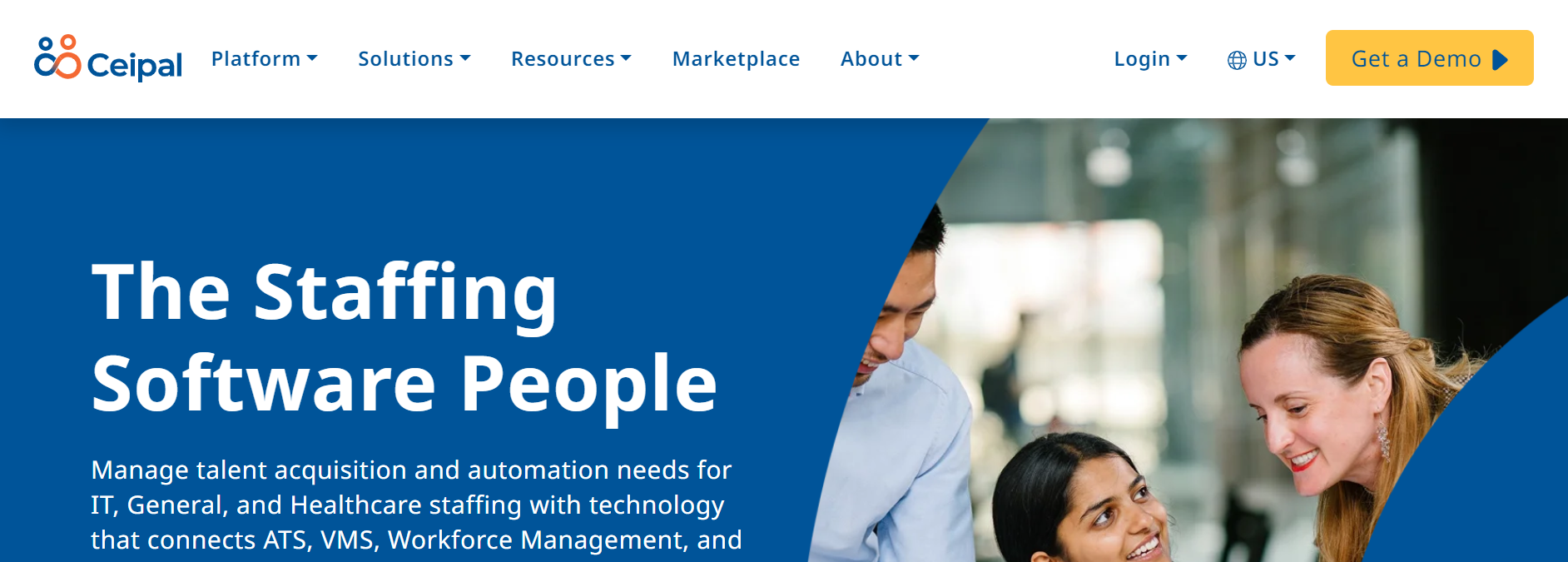
Ceipal benefits HR agencies for several reasons:
- Increased productivity: Ceipal automates repetitive tasks in the talent acquisition process, saving time and consequently increasing efficiency in talent management.
- Intuitive platform: Ceipal has an intuitive design and offers a 24/7 support team, making it easy to use and quickly resolving any issues that may arise.
- Complete management: It is a complete talent management tool that helps HR agencies manage job postings, application profiles, interviews and feedback, and select the right candidates.
- Easy onboarding: Ceipal provides comprehensive notifications and specific analytics functions, making it easy to onboard new employees and streamline the onboarding process.
- CRM integrations: Ceipal integrates with other HR systems, such as payroll management software.
In summary, Ceipal helps HR agencies improve productivity throughout the talent acquisition process, offering an intuitive user experience and simplifying the onboarding and introduction process.
4. CVVIZ
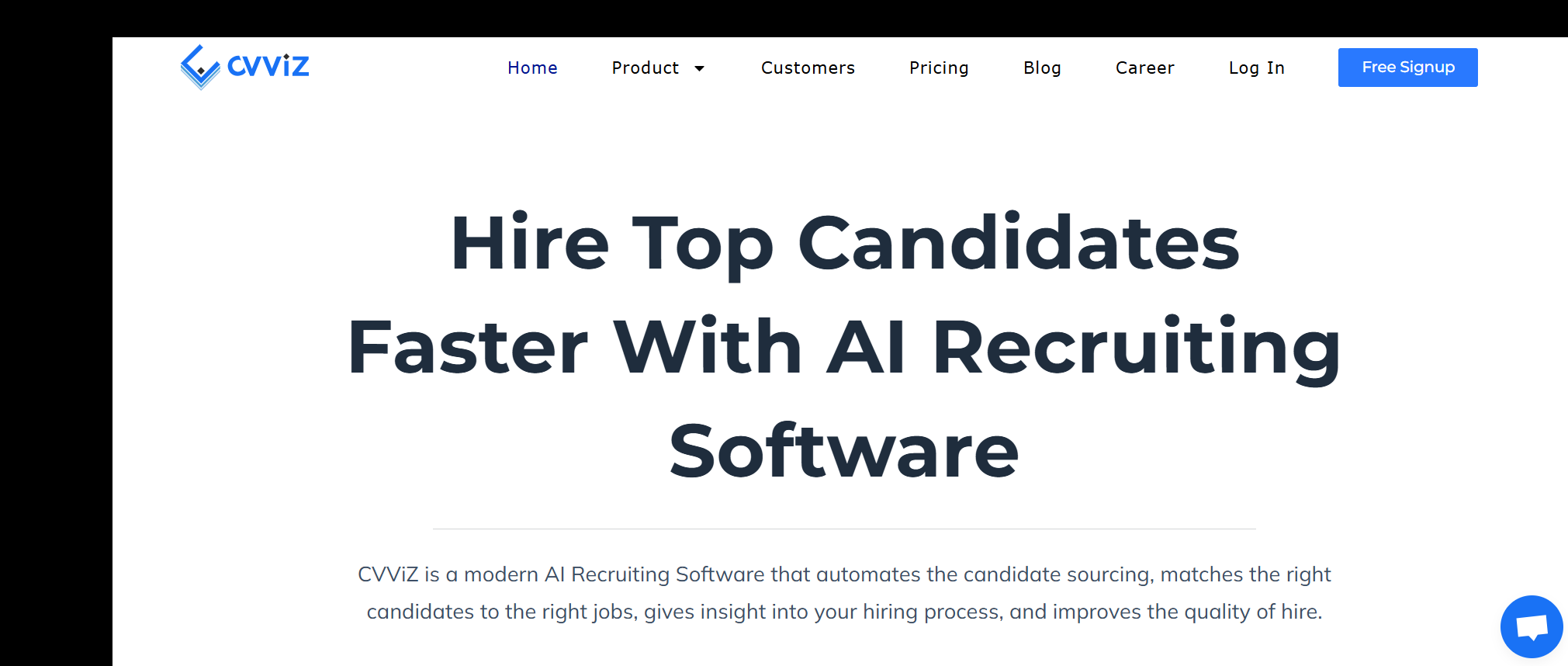
CVVIZ automates the process of reviewing received resumes. With over five years of experience in the industry and over 850,000 resumes examined, CVVIZ has proven to be a valuable resource for talent search teams. This allows HR agencies to efficiently analyze more candidate profiles and data. By saving time and effort, agents are better able to focus on crucial aspects of hiring that need to be done by the human team, such as interviewing and evaluating candidates.
Additionally, it is worth noting that CVVIZ's technology improves the accuracy of candidate selection by eliminating unconscious bias and ensuring fair evaluation of all applicants. This not only enhances the quality of hires but also promotes diversity and inclusion in the hiring process.
In conclusion, a tool like CVVIZ helps identify the most suitable candidates more efficiently and make much more informed hiring decisions.
5. Wade & Wendy
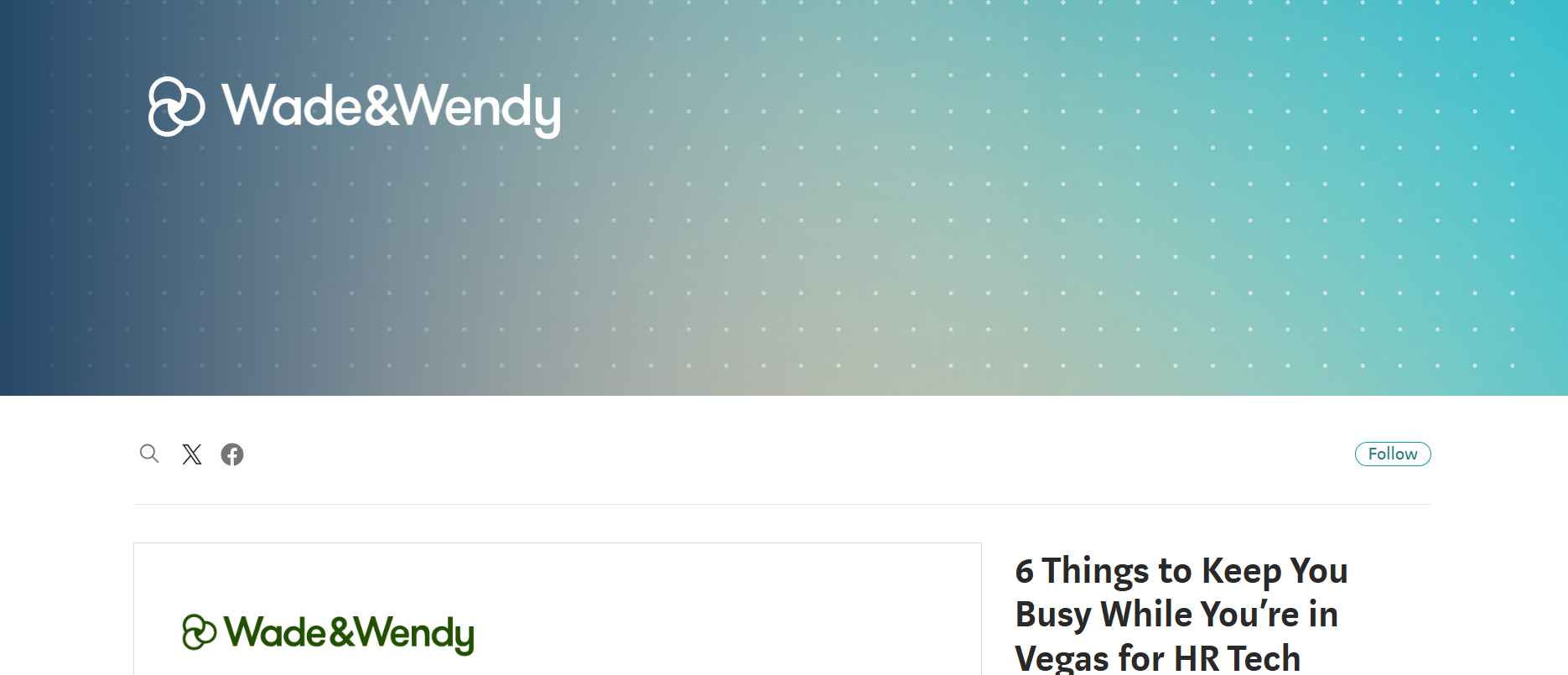
Wade & Wendy offers an AI-powered chatbot platform that enhances the hiring process. Their chatbot, based on artificial intelligence and natural language processing, simulates conversations with candidates, helping agencies automate and streamline various HR team tasks.
One of the main advantages of Wade & Wendy is that it encourages candidate engagement and improves their overall experience. The chatbot engages in conversations with applicants, providing them with personalized interactions and answering their questions throughout the hiring process. This high level of efficiency and rapid response not only enhances the candidate experience but also helps agencies attract and retain top talent.
Wade & Wendy's chatbot aids in resume screening and initial candidate evaluation. It can analyze resumes, assess candidate qualifications, and provide recommendations to agencies, reducing the time and effort required for manual screening. This automation improves the efficiency of the selection process and allows HR agencies to focus on more strategic and value-added tasks.
Additionally, Wade & Wendy's chatbot platform can proactively reach out to potential candidates, gather information, and pre-screen them based on predefined criteria. This proactive search capability helps agencies identify and reach out to qualified candidates more efficiently, thereby increasing the likelihood of finding the right fit for vacant positions.
6. Textio
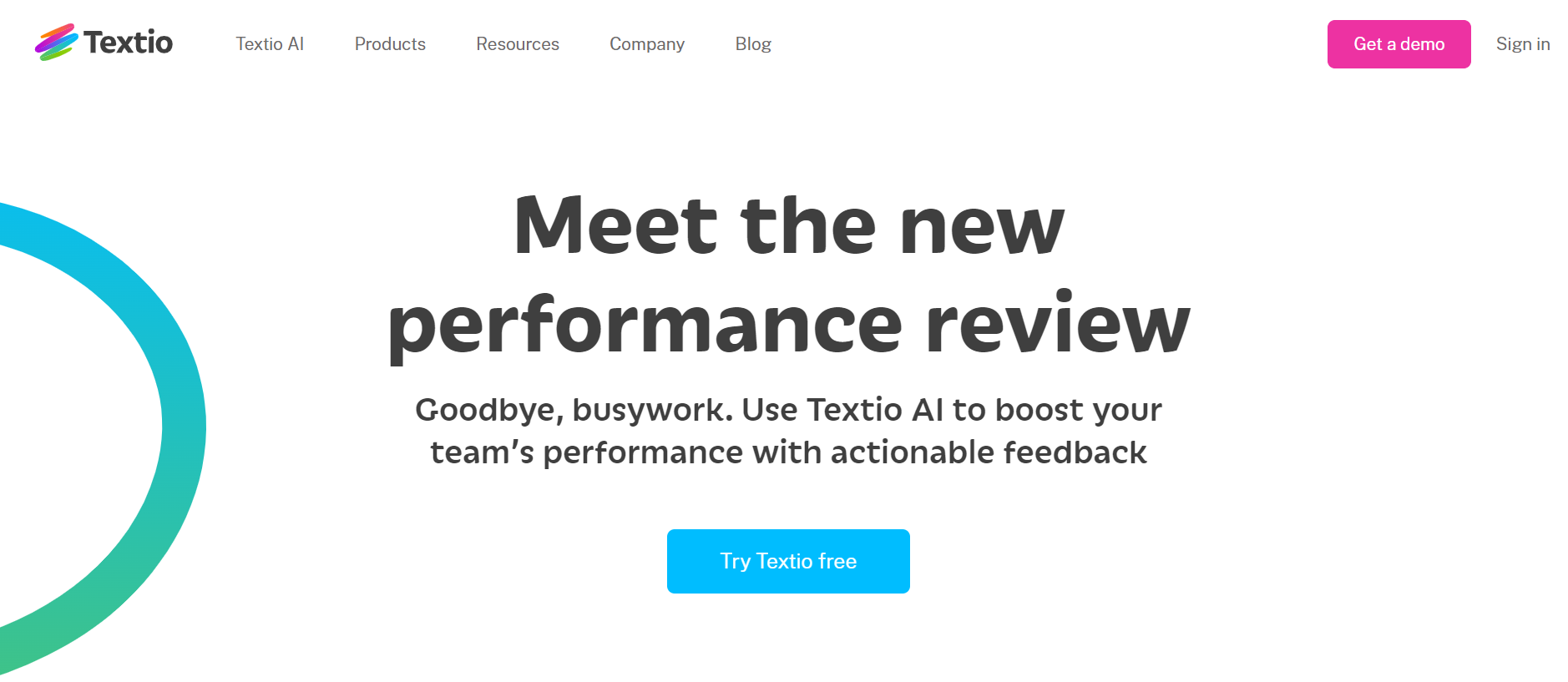
Textio is a tool that helps improve the writing and impact of job advertisements and job descriptions. Using artificial intelligence and machine learning, Textio analyzes the wording of a text and provides real-time suggestions for optimization. This is especially important for HR agencies, as well-written and engaging job ads can attract a larger number of qualified candidates.
Textio uses data collected from billions of job descriptions and language patterns to identify the best words and phrases that generate positive responses from candidates. By optimizing the wording of ads, HR agencies can attract a more diverse and talented pool of candidates.
Additionally, this platform also helps eliminate gender bias and other unconscious trends in job descriptions. The platform analyzes the text for words or phrases that may influence candidates' perception and suggests more neutral and appealing alternatives. This helps promote equal opportunities and ensures that HR agencies focus on the skills and qualifications needed for the position, rather than other personal aspects.
7. Beamery
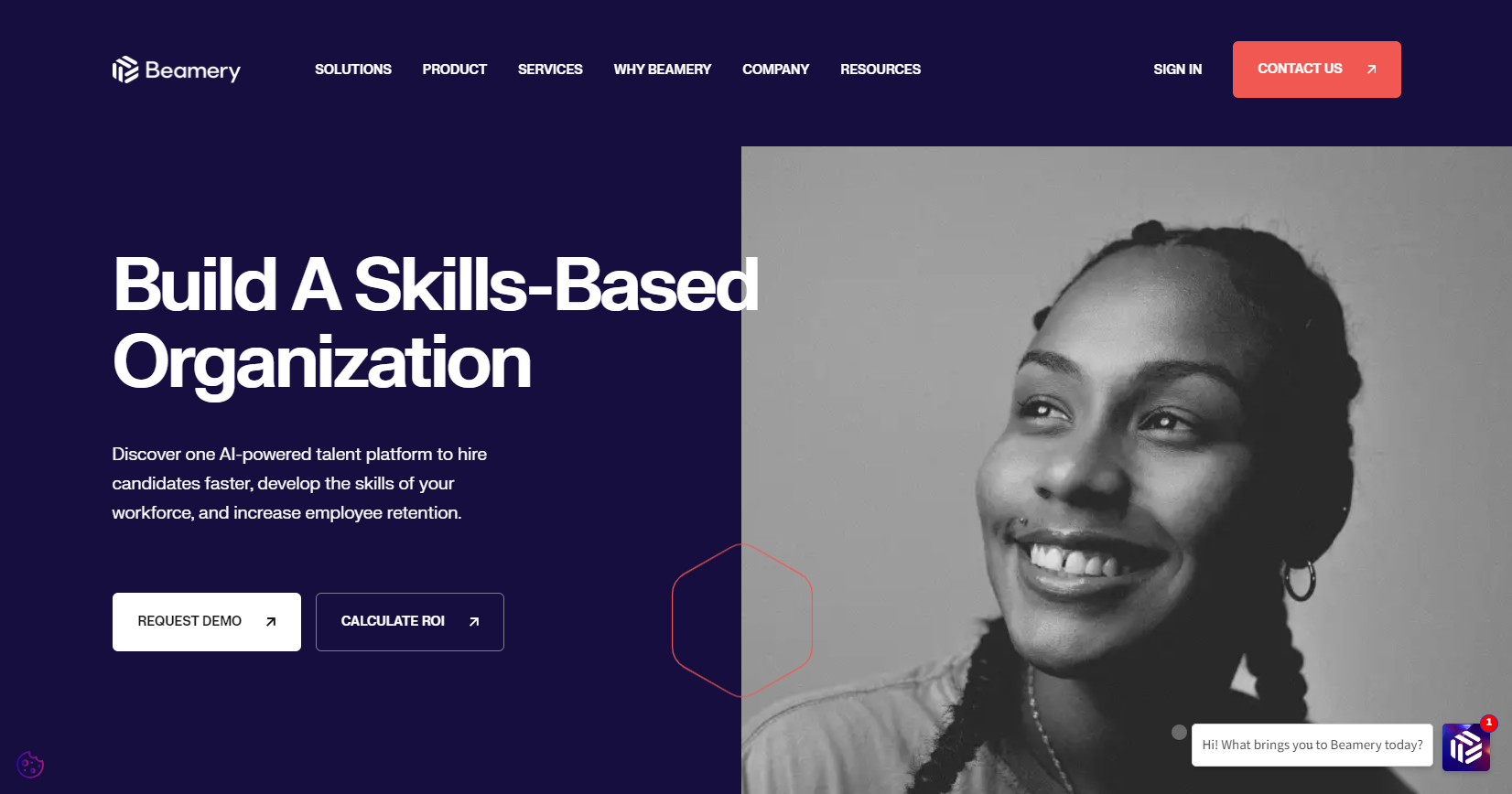
Beamery is a comprehensive talent management platform that enables building meaningful relationships with the right candidates. This talent management and recruitment software provides organizations with the necessary technology to make informed decisions about potential candidates and supports them at every stage of the process, from recruiting to onboarding once hired.
HR agencies face challenges such as the growing skills gap, different economic conditions, and evolving work expectations. Beamery provides tools and resources that allow identifying and attracting top talent, as well as retaining them in the long term. This includes features such as proactive talent management, process automation, data analytics, and real-time collaboration.
Moreover, Beamery integrates with other HR platforms like Workday, making real-time data flow easier and improving the efficiency of the recruitment and talent management process. This integration allows HR agencies to optimize their operations fully and maximize productivity.
Benefits of AI in Recruitment

Time and Cost Efficiency
One of the most significant benefits of AI in recruitment is its ability to save time and reduce costs. Automating manual processes like resume screening and candidate sourcing enables recruiters to focus on more strategic and value-added activities. As a result, recruiters can handle high volumes of applicants efficiently, shortening time-to-hire, and reducing costs associated with lengthy recruitment campaigns.
Improved Candidate Experience
AI enhances the candidate experience by providing timely updates, personalized communication, and quick responses to candidate inquiries. Chatbots powered by AI can engage with candidates, answer frequently asked questions, and guide them through the application process. Options like Empower by Ringover, a sales enablement software and top AI recruiting tool, can be used in recruiting for sentiment analysis, which identifies key moments during interactions with candidates. With these insights at hand, recruiting agents will be able to provide more personalized responses and better negotiate. Overall, this personalized approach contributes to a positive candidate experience, leading to higher engagement and increased chances of securing top talent.
Enhanced Candidate Matching
AI-powered algorithms can analyze job descriptions, resumes, and candidate profiles to identify the right match more accurately. By leveraging machine learning and natural language processing, AI systems can evaluate candidate skills, experience, and qualifications against job requirements. This leads to more efficient shortlisting and ensures that recruiters focus on candidates with the best fit for the role.
Unbiased and Inclusive Hiring
AI has the potential to minimize biases in recruitment processes. Human bias, conscious or unconscious, can influence decision-making. AI systems, when properly trained and designed, have the ability to eliminate bias by evaluating candidates solely on their qualifications and performance. This promotes diversity, equity, and inclusion in the hiring process, creating a more fair and balanced recruitment environment.
Data-Driven Decision Making
AI-powered tools collect and analyze vast amounts of data from various sources, providing valuable insights and predictive analytics for recruiters. By leveraging this data, recruiters can identify patterns, trends, and success factors that help inform their decision-making. This data-driven approach leads to more informed hiring decisions and increases the likelihood of finding the right candidates for the organization.
Continuous Improvement
AI systems continuously learn and evolve based on their interactions and feedback. As recruiters and hiring managers use these systems, they contribute to the improvement of the AI algorithms and their accuracy in predicting successful candidates. This iterative process ensures that the AI technology becomes increasingly effective over time, enabling recruiters to make better hiring decisions and optimize their talent acquisition strategies.
Uses of AI in recruitment

Manage candidate pipeline
Having a healthy candidate pipeline requires a healthy combination of human effort and technological support. AI takes care of repetitive manual tasks like screening and sorting candidates, and can even solicit specific information from candidates to smooth out the initial interview.
Decrease recruitment bias
One of the most impactful functionalities often included in AI recruitment technology is candidate resume sorting at scale. This contributes significantly to improving efficiency, but it's not the only benefit of this particular feature. Reducing unconscious bias is also a strong advantage, as the technology can be programmed to look specifically at skills and to leave certain attributes, like age, gender, and education, to the side.
Improve hire quality
AI is capable of searching through profiles and resumes quickly and easily, whether the potential candidates are within your candidate pool or not. Certain powerful AI tools can even analyze profiles to suggest highly qualified candidates who have yet to apply to the job. But the help AI provides doesn't stop there. This technology can identify who is qualified for the position, in addition to determining how likely the candidate is to succeed and stay in their role.
Challenges of using AI in recruitment
Need for technical training
Adding new technology to your tech stack can always result in a learning curve for employees. Integrating an AI-powered software into your tech stack may eventually result in efficiency and productivity gains, but recruiters and other employees may still need to be onboarded. You'll need to take this period into account as you set expectations for employees and calculate your ROI. You may even need to factor in training costs for a professional onboarding session from a third-party company or the software publisher.
Privacy concerns
As AI technology has entered households all over the country, the privacy concerns have also become common. That's because AI must be trained with large quantities of data, and is frequently used to gather and analyze information. When it comes to AI in recruitment, candidates may not be fully aware of how their personal details are being collected or even used. That's why it's best for businesses to disclose how candidate data will be used and especially if it will be added to a database and kept for any significant period of time.
Quality of data
One of the reasons privacy has become a topic of concern for the public at large is because AI must be trained and developed with high quality data to provide quality insights. If the original AI models were trained with incomplete or inaccurate information, they could be more harmful than helpful.
Biased algorithms
Once again, one of the big AI challenges starts with data. One longstanding issue that has plagued recruiters is unconscious bias. Recruiters are often unaware of certain prejudices they hold, which are then expressed during recruitment. Though AI recruitment tools may promise a reduction in complex issues like unconscious significant results, if the algorithms they used were trained on biased data, they may just reinforce prejudices.

How AI will evolve the recruiter role
Whenever artificial intelligence is starting to be used in an industry, the efficiency and productivity gains it delivers always raise the question: will employees be made redundant because of this technology?
However, AI has its limits–it is mainly useful in the reduction of repetitive tasks. This includes responsibilities like sorting through candidate resumes, entering duplicate candidate information across software or in form creation, and even onboarding sessions.
So recruiters shouldn't expect to be replaced by AI. What's more likely is that recruiting agents will decrease the time spent on manual tasks. This will free up more time and opportunities for the responsibilities technology can't take on. For example, AI can't develop relationships, communicate empathy, or negotiate. These are the areas where recruiters will have more time to invest as AI technology becomes more common.
Conclusion
AI has revolutionized the recruitment landscape by automating tasks, improving efficiencies, and enhancing candidate experiences. The use of AI in recruitment has numerous benefits, including time and cost savings, improved candidate matching, unbiased hiring, data-driven decision-making, and ongoing improvement. As organizations strive to attract top talent in competitive markets, incorporating AI into their recruitment processes can provide a competitive edge, enabling them to identify and hire the best-fit candidates efficiently.
By recognizing the potential of AI in recruitment and embracing its capabilities, organizations can optimize their recruitment strategies, find the right talent quickly, and build high-performing teams that drive business success.
Remember, while AI in business offers significant advantages, it is essential to strike a balance between automation and human touch, as building relationships and nurturing candidate connections remains crucial in the recruitment process.
Bibliography
- https://www.forbes.com/
- https://www.linkedin.com/
- https://www.npr.org/
- https://www.linkedin.com/
- https://www.forbes.com/
Published on December 2, 2024.


